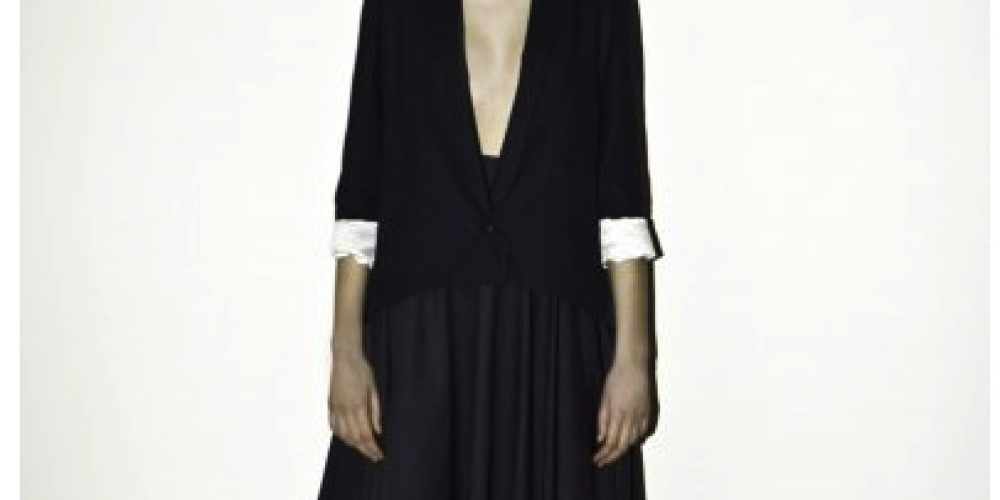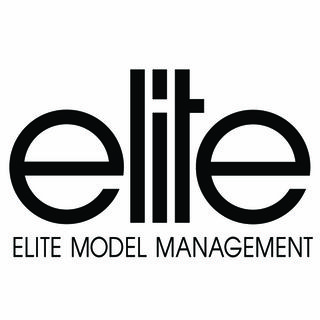I met Wendy through her daughter, Bronte Martin. Bronte began modelling a season after I did and she quickly integrated into our tight-knit friend group at our shared agency. At fourteen-years-old, she was two years younger than I, but she managed both her professional and personal life with intelligence and poise. I saw Wendy frequently, as she always accompanied Bronte to castings and jobs. Since Bronte transitioned out of modelling and into university life, she has continued to inspire me with her ambition, optimism, and sense of humour. Wendy Hallam Martin took the time out of her schedule to talk about her experiences parenting a young model. I hope that other parents can look up to her as a role model in how they parent a child in an adult’s industry.
The Business Model: When we’re you first introduced to the modelling industry?
Wendy Hallam Martin: I myself was asked to model by a scout when I was a teenager, but I ended up at an agency where they wanted me to sign up for a course and pay for my own portfolio. I didn’t know that there was an alternative so I declined, as it seemed like a scam. I later did some modelling part-time for some photographers in college.
TBM: What was your view of the industry prior to Bronte entering it? How did that change?
WHM: My view of the modelling business was that it could be a great way for a young girl to gain self-confidence, have fun wearing glamorous make-up/clothes, take nice pictures, make money and possibly travel.
My view changed when I realized that these girls are put under so much pressure to look a certain way (measurements) and that they basically were farmed out for shoots, runway, hair shows etc. with no pay and with the hope of impressing someone enough to give them a paying job down the road.
TBM: How did Bronte first tell you that she wanted to model?
WHM: Bronte was approached on the street a couple of times by photographers/scouts when she was really young. I told her that wasn’t an option until she was at least 16 years old. When she turned 15, she asked to try it out because 15 was the age that models were doing runway and that was her dream. I allowed her to consider it only if I was involved 100% I also made it clear to her that university was a priority down the road and that modelling wasn’t a career choice.
TBM: What was your initial reaction?
WHM: My initial reaction was «Amazing! [Big Name Toronto Agency] wants my daughter! Hundreds apply and she made it!» We were both very flattered but I was secretly hesitant only because of how young she was. Rejection during castings was possibly hard for someone at that age to deal with.
TBM: What made you decide to allow her to start, especially at such a young age?
WHM: After we talked it over and I was pretty sure she was mature enough in her views of the whole thing, I agreed with a couple of conditions. I would attend all of her shoots/castings and meetings with the agency. The minute it wasn’t fun anymore or a discussion about weight or diet comes up, we are out. She agreed and we signed.
TBM: Did you ever worry for her mental or physical health?
WHM: Yes, I did worry all the time. When her agent started talking to her about ‘exercising,’ the discussion about quitting was initiated but she was determined to stick it out even though her body was changing. She was gaining hips. Her measurements were taken and a few months later [the agency] dropped her. She was completely devastated. They didn’t even have the courtesy to tell her in person. They just sent out a form letter.
Not wanting to give up just yet, she wanted to try once more. We set up meetings with the other top agencies in town. One agency suggested that Bronte should get a nose job and then they would sign her. We couldn’t get out of there fast enough. We eventually chose [another big name Toronto agency].
TBM: Did modeling ever put a strain on your relationship with her or on the family?
WHM: Bronte was edgy a lot of the time because of the pressure she was under to stay within the suggested measurements. After being dropped by [one agency], she was signed at [another] but still the same request to lose an inch of her hips was there. I told her that this is getting [to be] too much and we should quit. She was determined to do it. It made her absolutely miserable which put a lot of strain on our relationship. We had many discussions about [whether it was] worth it. Through hard work, a healthy diet and exercise she achieved her goal.
TBM: Why did she decide to stop modelling?
WHM: Finally when she got to the desired size, we met her agent only to discover that she had left and went to [her old agency]. Bronte was so devastated and that is when she said, «I don’t want to do this anymore.» So that was it.
TBM: Why did you not allow her to travel? When would it be appropriate for a child model to travel?
WHM: Bronte was asked to go to Italy at 15. I had heard the stories of young models and how some of them were treated. I said to her agent that Bronte would not be doing any travelling until she was at least 18. He tried to argue the point and that I was welcome to go with her etc. but my feeling was that she was too young no matter who was with her.
Bronte Martin by Geoffrey Knott
Bronte Martin by Geoffrey Knott
TBM: If you could go back in time, would you have still allowed Bronte to model?
WHM: Yes, I would because it was a dream of hers and if she hadn’t given it a try she would have always wondered, “What if?” I think it taught her a lot and I feel that because I was always with her, we could have the conversations that helped her to deal with things.
TBM: Do you think your opinions about the industry would have been different had Bronte started modelling at a later age?
WHM: No. I think the negative aspects for women models are there no matter what age. Our society still values young and thin and I think until that changes, models will always have that pressure to stay thin and start young.
TBM: What are your thoughts on the legislation that just passed for child models in NYC? If such a law was implemented in Canada at the time Bronte started modelling, do you think hers and your experience in the industry would have been different?
WHM: I think that this type of legislation is long overdue. I think it would have helped in Bronte’s experience in regards to long hours and [lack of] payment.
TBM: Do you hope to see a similar bill passed in Canada for Canadian child models?
WHM: Yes, most definitely.
TBM: Have you had many parents approach you about their children getting into modelling?
WHM: I have had a couple of parents ask me about the industry for their kids. Knowing what I know about what agencies look for, I could tell that it wasn’t going to happen for them. Sometimes it is more the parents dream than the child’s.
TBM: What advice would you give to other parents on how to tell if modelling is an appropriate job for their child? (Any necessary traits, financial issues, etc.)
WHM: I would advise them to do the research. Talk to as many people as possible. I would say to them that not every child can handle the pressure and only do it if it remains fun for the child. They shouldn’t expect to make much money at all unless the child is booked constantly.
TBM: What did Bronte gain from her time as a model?
WHM: Bronte actually gained a lot through this process. She definitely had some good times and with the bad, she became stronger and more aware of what was important in life. We became very close and I think she finally understands why I was with her for every shoot, casting, etc. She has become a very self-confidant young lady. She also really has learned the value of higher education, which was always the plan.






